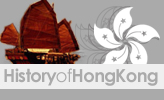
The history of bus transport in Hong Kong began with the introduction of the first bus routes in Hong Kong in the 1920s.

A double-decker bus or double-deck bus is a bus that has two storeys or decks. Double-decker buses are used for mass transport in the United Kingdom, the United States, Europe and Asia, the best-known example being the red London bus, namely the AEC Routemaster.
Central Scottish Omnibuses Ltd was a bus operating subsidiary of the Scottish Transport Group formed in June 1985 from Central SMT, and operated until July 1989 when it was merged with Kelvin Scottish to form Kelvin Central Buses.

Metro is the passenger information brand used by the West Yorkshire Combined Authority in England. It was formed on 1 April 1974 as the West Yorkshire Passenger Transport Executive (WYPTE) at the same time as the metropolitan county of West Yorkshire. The Metro brand has been used from the outset, and since the formal abolition of the WYPTE on 1 April 2014, it has been the public facing name of the organisation. The transport authority of West Yorkshire, responsible for setting transport policy, is the West Yorkshire Combined Authority. The WYCA is also responsible for delivery of transport policies.

Sullivan Buses is a bus company based in South Mimms, Hertfordshire, England. Founded in 1998, it operates local bus services in and around Hertfordshire and north London including school services, rail replacement bus services in and near London, bus links in Surrey to and from Thorpe Park and vehicle hire for television programmes.

First London was a bus company operating services in east and west Greater London, England. It was a subsidiary of FirstGroup and operated buses under contract to Transport for London. It was formed in the late 1990s through the acquisition of three London bus operators. First London's garages were sold off between December 2007 and June 2013 with the last closing in September 2013.

The National Bus Company (NBC) was a nationalised bus company that operated in England and Wales between 1969 and 1988. NBC did not run buses itself, but was the owner of a number of regional subsidiary bus operating companies.

Stagecoach Yorkshire is an operating division of Stagecoach Group.

First Leeds is one of the bus companies serving the area of West Yorkshire, England. It forms part of FirstGroup, a company operating transport services in the British Isles and in North America. The company operates within the area covered by Metro, a public body responsible for helping to co-ordinate public transport services in the West Yorkshire area.

Yorkshire Traction was a bus operator in Yorkshire that operated from 1902 until 2005.

Boro'line Maidstone, previously Maidstone Borough Council Transport was a municipal bus operator in Maidstone and the surrounding villages. Maidstone Borough Council Transport was formed in 1974 from Maidstone Corporation Transport following local government reorganisation. In 1986 Boro'line Maidstone was formed as an arm's length company of Maidstone council from the operations of Maidstone Borough Council Transport. The company had a brief London operation. Following financial difficulties, the London operation was sold to Kentish Bus, and after a period of administration, the assets of the Maidstone operation was sold to Maidstone & District in 1992.

London Buses route 75 is a Transport for London contracted bus route in London, England. Running between Croydon and Lewisham station, it is operated by Stagecoach London.

South Yorkshire Transport (SYT) was a bus operator that provided services around South Yorkshire and outlying areas. The company was formed as an 'arms-length' successor of the South Yorkshire Passenger Transport Executive (SYPTE) in 1986, which was broken up as a result of the deregulation of bus services. South Yorkshire Transport operated buses in and around Doncaster, Rotherham and Sheffield with some services extending to Chesterfield, Leeds and Barnsley.

South Notts Bus Company was a bus company operating in Nottinghamshire from 1926 until 1991 when sold to Nottingham City Transport who continue to use the brand name today.

The East Lancs Flyte is a type of single-decker bus body built on several different chassis rebodied and original types by East Lancashire Coachbuilders as the replacement for the East Lancs EL2000 from 1996 to 2001.

The Northern Counties Palatine was a step-entrance 2-axle and 3-axle double-decker bus body built by Northern Counties from 1988 to 1999 in Wigan, England.

Busways Travel Services was an English bus operator that operated services in the Tyne & Wear area. In July 1994, Busways was purchased by Stagecoach.

Bendy buses were rarely used in the United Kingdom compared to other countries, until the turn of the millennium. This was due to the UK preference for the quintessential double-decker bus for use on high capacity routes. As of June 2006, there were over 500 articulated buses in the UK, although they are still heavily outnumbered by double deckers. The majority of this fleet was used in London, although these buses would be withdrawn by end of 2011.

Buses play a major role in the public transport of the United Kingdom, as well as seeing extensive private use. While rail transport has increased over the past twenty years due to road congestion, the same does not apply to buses, which have generally been used less, apart from in London where their use has increased significantly. Bus transport is heavily subsidised, with subsidy accounting for around 45 per cent of operator revenue, especially in London.

The Volvo B10B was a rear-engined step deck single-decker bus chassis manufactured by Volvo between 1992 and 2001. The first prototype were built in 1990, but the B10B wasn't launched until the 1992 Geneva Motor Show. It superseded the Leyland Lynx and Volvo B10R. For stage use it was gradually succeeded by the low-entry B10BLE, which was introduced only a year later, though not in all markets. For interurban use the B7R came as a gradual replacement in 1998, and ultimately for coach work, the B12B took over in 2001.

























